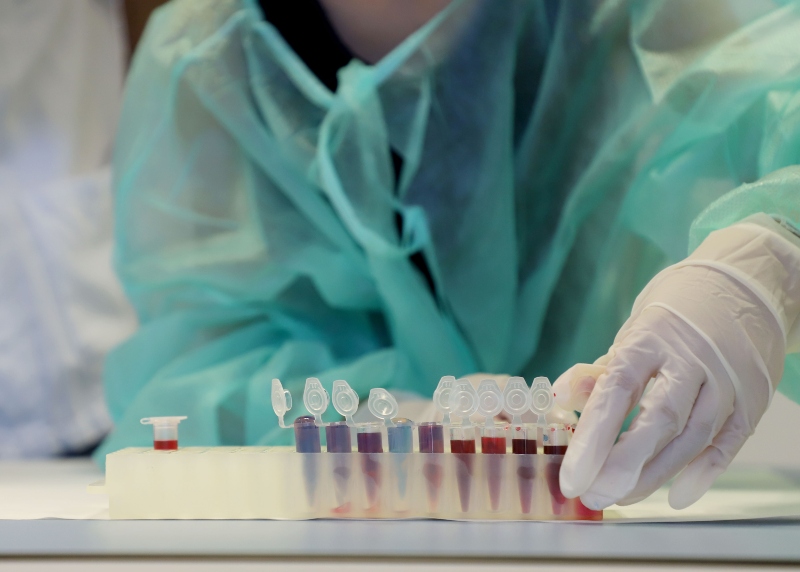The IGTP shares its research projects for European Researchers’ Night

For the first time the IGTP has participated in the European Researchers' Night, part of the European Commission's Horizon 2020 Programme, which aims bring scientists and society together. Five researchers from the institute have participated in science popularization events.
European Researchers' Night takes place on the last Friday in September every year. Last Friday, 27 September, nearly 300 cities celebrated with simultaneous free popular science activities bringing research closer to the public. In Catalonia the event went even further than just Friday, with talks during the mornings at the weekend, and at some schools and colleges. It was in these activities that the IGTP researchers took part.
Exchanging knowledge and experience to improve the management of tuberculosis
Bárbara Molina of the Innovation in Respiratory Infections and Tuberculosis Diagnosis Group went to the JV Foix Institute in Rubí to tell them about a project that started in 2019. She works on the European exchange project INNOVA4TB (Marie Skłodowska-Curie (MSCA)), coordinated from the IGTP, which involves 12 centres from six different countries. They share knowledge and studies to improve aspects of diagnostics and treatment for tuberculosis.
TALK: A European exchange project to improve the handling of tuberculosis (Bárbara Molina, JV Foix Institute, Rubí)
Following the clues for rare diseases
On Saturday morning the researchers from the Neuromuscular and Neuropaediatric Research Group shared their project with the people coming to hear the talks at the Sagrada Família Public Library. Emma Koehorst and Judit Nuñez Manchón work to understand how complex rare diseases work, in their case neuromuscular diseases that affect children. These diseases have no cure and their biology is complicated, making it important to pick out the smallest clues. Two days earlier, Gisela Nogales, leader of the group, explained what rare diseases are and how they study them in her laboratory to try and generate understanding and treatments for two of them: McArdle's disease an myotonic dystrophy.
TALK: Research into Rare Diseases (Gisela Nogales, Pompeu Fabra Institut, Badalona)
TALK: The story of a Sherlock Holmes PhD Student: Finding Clues in a Rare Disease (Emma Koehorst; Biblioteca Sagrada Família, Barcelona)
TALK: Single cell analysis: studying the unique to understand a complex rare disease (Judit Nuñez, Biblioteca Sagrada Família, Barcelona)
Fighting childhood liver cancer from the laboratory
Childhood cancer is defined as a rare disease, so Carol Armengol of the Childhood liver oncology (c-LOG) Group at the IGTP leads an international project to collect enough samples to study this type of cancer from all over Europe. The people attending the talk at the Cor de Maria de Blanes School have learnt what cancer is and how scientists study it in the laboratory with one single goal: to understand the diseases so they can offer better treatments to patients in the future.
TALK: What is cancer? Fighting childhood liver cancer from the laboratory (Carol Armengol, Escola Cor de Maria de Blanes, Blanes)
